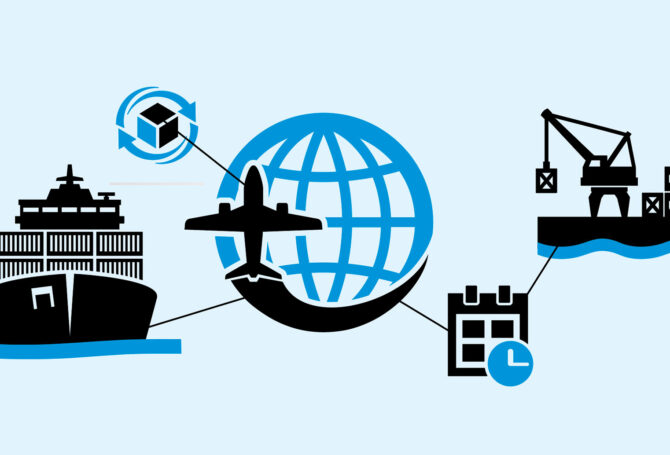
Modernizing infrastructure is the political equivalent of chasing a rainbow. The chase resembles a soap opera.
The quest transcends presidencies. The current soap opera episode began with President Biden proposing a $2.3 trillion investment in infrastructure writ large – not just roads, bridges and waterways, but also broadband, housing and childcare facilities. The script unfolded from there.
Democrats praised Biden’s American Jobs Plan for going beyond traditional built infrastructure. Republicans hated it for the same reason. Republicans also said the package was too large and raising taxes on the wealthy and big corporations was a non-starter.
The first soap opera plot twist came when two of the Senate’s 50 Democrats said they would only vote for an infrastructure bill with bipartisan support. That dashed any hope of ramming through an infrastructure investment package as part of a budget reconciliation measure, a procedure that gets around the Senate filibuster.
The plot twist triggered bipartisan negotiations between Senate Republicans and the White House. Republicans made a counter-offer narrowly focused on ‘hard’ infrastructure and paid for in part with a federal gas tax hike. Biden rejected the proposal, which led to a second GOP counter-offer with a higher spending level that included broadband expansion, but no gas tax. Biden nixed that proposal, too.

From the ashes of one failed bipartisan negotiation rose another, with five Senate Democrats (including the two Democrats who demurred on reconciliation) and five Senate Republicans putting their heads together. They produced a $1.2 trillion compromise that fudged a little on traditional infrastructure by including broadband, power grids and electric vehicle investments. Funding for the package would come from a dozen sources such as tougher collection of unpaid taxes by high-earners and repurposing unspent portions of the American Rescue Plan.
Eleven GOP senators signed up to support the compromise, but some progressive Senate Democrats said they weren’t yet on board.
Biden gave thumbs up to the compromise in a White House press conference, then simultaneously creating a row by tying the traditional infrastructure bipartisan deal to a Democrats-only reconciliation measure that included his human infrastructure proposals. The linkage of the two measures and the hint of a veto seemed to put the bipartisan compromise in peril. Biden walked back his veto threat, even as Democratic leaders were working to fast-track a reconciliation measure and progressive Democrats in the House threatened to stonewall the bipartisan compromise.
Biden gave thumbs up to the compromise in a White House press conference, then simultaneously created a row by tying the traditional infrastructure bipartisan deal to a Democrats-only reconciliation measure that included his human infrastructure proposals.
At the moment, the bipartisan agreement and accompanying budget reconciliation measures remain in on a precarious rainbow-chasing cliff.
In soap operas, love interests drive the plot. In congressional soap operas, it’s pure politics. Biden and Democrats see infrastructure investment as a huge job generator, creating opportunities for blue collar workers Democrats want to retain and win back to their political flock. More investment and jobs can propel larger economic growth, a winning sales pitch for America’s middle class. Republican constituencies want investments in roads, bridges and waterways, too, but Republican politicians are wary of giving Biden and Democrats an achievement they can tout in the 2022 midterm elections.
The range of investments and how to pay for them reveals an even greater divide between Democrats and Republicans. Democrats, especially progressives, favor an expansive view of infrastructure spending and taxing the wealthy and corporations to pay for the investments. Republicans may favor investments in affordable housing, water systems with lead pipes and childcare facilities, but they don’t consider those as infrastructure investments. They adamantly oppose taxing the wealthy and corporations to pay for any investments and worry that too much federal spending could overheat the economy and spur inflation.

Polling reveals the underlying reasons for the partisan split on infrastructure investment legislation. An April survey conducted by CBS News showed 58 percent of Americans approved of Biden’s infrastructure plan. When you look underneath that overall number, you see 90 percent of Democrats and 57 percent of independents support the plan, but only 19 percent of Republicans.
Most soap operas revolve around a central character. The infrastructure soap opera revolves around West Virginia Democratic Senator Joe Manchin, who has been relentless and unmovable in urging a bipartisan infrastructure compromise. He has said so in an op-ed, in press conferences and in private meetings with the President. Yesterday, he said he could vote for a Democrats-only infrastructure package. You have to keep the audience guessing.
Biden is in Wisconsin this week to sell the bipartisan agreement’s merits for America’s working class. Congressional Democratic leaders continue to prepare a budget reconciliation measure that includes much of what Biden proposed in his American Jobs Plan and American Families Plan such as free preschool and community college tuition, lower health care insurance premiums and permanent childcare assistance. Biden wants votes taken in July. Senate Minority Leader Mitch McConnell is balking at what he calls Biden’s “ultimatum”.
Like any good soap opera, suspense is building on the ultimate outcome. Tune in to see if there be a pot of gold at the end of the infrastructure rainbow.




